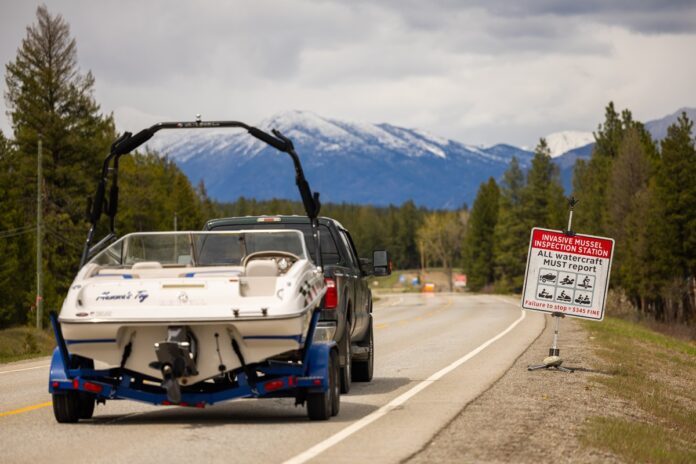The B.C. government’s Invasive Mussel Defence Program is out in full force this summer with boat inspection stations set up throughout the region.
Anyone transporting watercraft within B.C. must stop at these locations so inspectors can make sure zebra and quagga mussels are not hitching a ride.
Officials with the B.C. government said the mussels pose a significant threat to ecosystems if they are introduced.
“Zebra and quagga mussels represent a serious threat to BC’s aquatic ecosystems and substantial economic impacts to sectors such as hydropower, agricultural irrigation, municipal water supplies, tourism and recreational boating,” said Martina Beck, Unit Head of Freshwater Applied Science and Programs with the BC Ministry of Water, Land and Resource Stewardship.
Zebra or quagga mussels have not yet been detected in B.C. waterways, even though they have been found in 33 American states, Manitoba, Ontario, New Brunswick and Quebec.
“Unfortunately, we can’t let our guard down, as many waterways in this region offer suitable conditions for these mussels to survive,” said Beck.
Both mussel species are native to the Caspian and Black Sea regions, and according to the Canadian Government, they found their way into North American waterways by getting stuck in the ballast tanks of ocean-faring vessels.
In the 1980s, the mussels spread into the St Lawrence River and Northeastern U.S. waterways.
These invasive mussels can have major impacts if they establish themselves in new waterways, as they can clog water intakes, reduce the availability of nutrients for other aquatic life and take over beaches and docks.
The Invasive Mussel Defence Program, delivered by the B.C. government and backed by the Columbia Basin Trust, BC Hydro, FortisBC and other organizations, helps keep zebra and quagga mussels out of the province.
This is done through mandatory watercraft inspection stations and teaching the importance of keeping boats and equipment clean, drained and dry.
According to the Columbia Basin Trust, the program inspected 20,900 inspections last year and found 14 watercraft harbouring mussels.
If you are transporting a watercraft in B.C., failing to stop at an inspection station could get you a $345 fine.
B.C. officials said conservation officers handed out 85 tickets and 45 warnings in 2021.
You can learn more about invasive mussels here.
Be the first to know! Don’t miss out on breaking news and daily updates in your area. Sign up to MyKootenayNow News Alerts.






